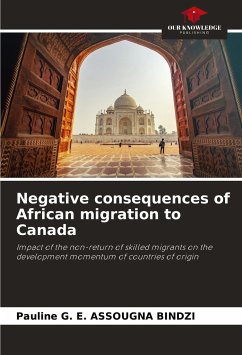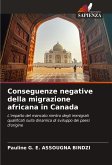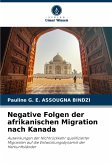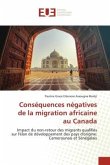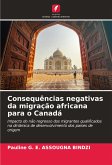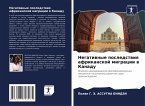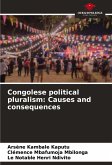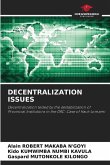This book examines the perverse effects of African migration to Canada. It focuses on the impact of the non-return of top-performing migrants from Cameroon and Senegal on the development dynamics of their respective countries. Sub-Saharan Africa, a geographical area of the globe rich in high-quality human resources in terms of its young, skilled population, is paradoxically lagging behind in terms of socio-economic growth. One of the reasons for this is the brain drain. Indeed, according to several studies, Africa is the continent most affected by brain drain. The IOM estimates that thousands of African intellectuals have left the continent in recent years for study, training or professional reasons. Canada, which opts for skilled immigration, is a magnet for these African nationals, thanks to the better job opportunities on offer. This represents an important workforce for sectors in short supply, and helps boost its economic growth to the detriment of that of source countries.
Bitte wählen Sie Ihr Anliegen aus.
Rechnungen
Retourenschein anfordern
Bestellstatus
Storno

